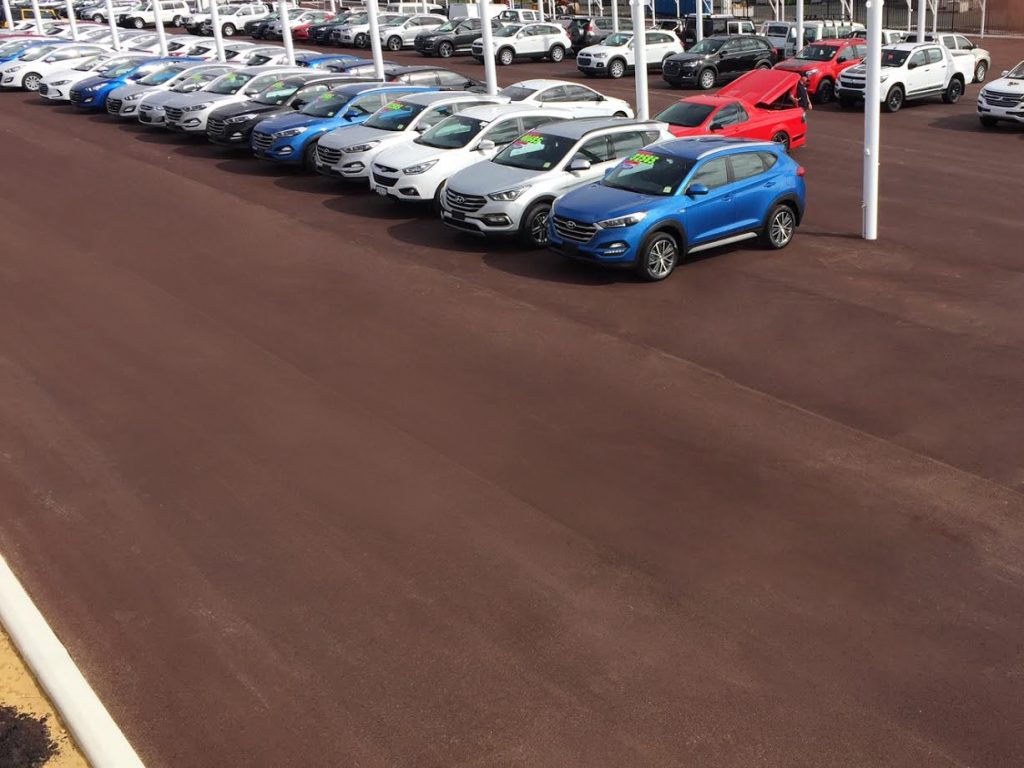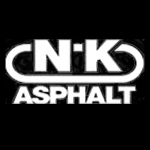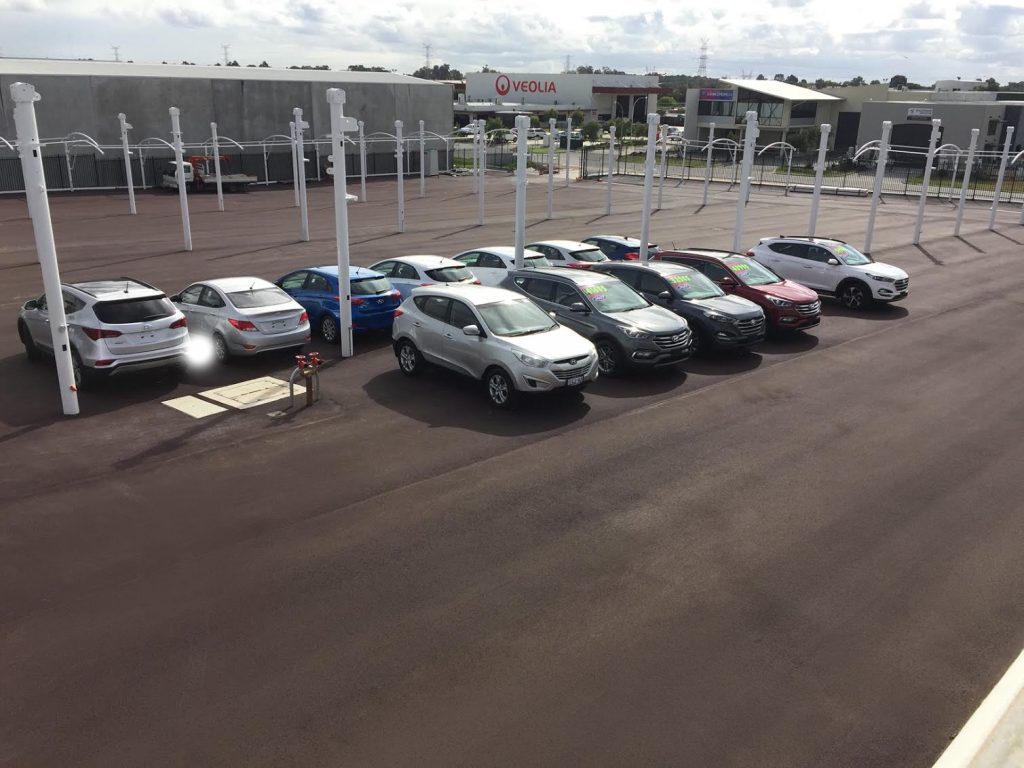You might know the word “hardstand” in relation to airports, military facilities and freight terminals and wonder if it has an application in your business.
What is a Hardstand?
Put simply, hardstand means a large, paved area to store cars, heavy vehicles and machinery. By definition, hardstands are thicker and more durable than other parking surfaces – such as a compacted base material – and built to withstand long periods of use.
A hardstand is a paved or otherwise improved area, typically made of concrete, asphalt, or compacted gravel, designed to withstand heavy loads. It’s often used for parking vehicles, storing equipment, or as a base for operations in industries like construction, transport, and logistics.
A hardstand has to bear the sustained weight of heavy vehicles and equipment without sinking, like sand, paving, or grass can. They may also need to support the long-term storage of pallets and containers with high point loadings due to small feet on the containers for instance.
Why Use a Hardstand?
Installing a hardstand area helps protect your valuable assets such as vehicles and machinery from damage from cracked surfaces, stone chips, sand or dirt. You won’t have to worry about vehicles getting bogged or the maintenance costs of less durable surfaces.
Hardstands are perfect for areas where heavy vehicles, machinery, plant and storage containers are parked for significant periods of time, or where vehicle and plant traffic is constant:
- Industrial yards
- Boatyards
- Storage yards – personal or commercial
- Container storage
- Car sales yards
- Vehicle depots
A hardstand will improve the overall look, functionality and safety of your company’s long-term parking and heavy vehicle areas. After all, the first thing a customer will notice about your business is how the outside looks as they drive into the car park.
What’s the Best Material to Use for Hardstands in Perth?
There is a range of materials that can be used to construct a hardstand. The most common are concrete, asphalt, gravel, roadbase and limestone.
If you need a hardstand that will endure heavy use from vehicles, plant, machinery and storage units, look no further than hot mix asphalt. This is a mixture of aggregate with a bitumen binder, mixed at a high temperature that is laid over a compacted base material.
Its versatility means it can be shaped to any area and doesn’t need joints for expansion, like paving, bricks and concrete. Asphalt “cures” quickly so you don’t have to wait for it to dry and chemically change like cement in concrete. It can be laid and driven on in the same or next day and is resistant to cracking and potholes. It gives you a better grip and reduces glare compared to concrete.
Asphalt’s long lifespan means you don’t have to resurface it for many years. When you do need to make repairs, it’s usually cheaper to repair or resurface compared with concrete as the old surface can usually be left in place and resurfaced, without being demolished and fully removed as is the case with old brick paving and concrete. All of this adds up to asphalt hardstands being more cost-effective, versatile, and hardwearing than alternatives.
When you choose an asphalt hardstand you:
- reduce downtime and labour costs during installation
- minimise ongoing repair costs
- protect your expensive plant and machinery
- keep your inventory away from dirt and water.
And even if you do opt for another kind of hardstand base, asphalt’s strength and resistance to water make it the best option for surfacing your hardstand.

Large red asphalt hardstand project completed by NK Asphalt for an automobile storage yard.
How Is Hardstand Construction Different From Roads or Driveways?
Hardstands may be built to be more durable than roads or driveways. The material may be thicker and can withstand heavier loads from cars, machinery and heavy-duty vehicles. Hardstands are constructed:
- 150mm thick for residential and light commercial use
- 200-300mm thick for heavy-duty commercial use
- Local ground conditions also affect the thickness required
Other items to consider besides drainage and soak wells are:
- light poles
- kerbing
- driveways and car parking
- fencing
- access points
- safety needs
- line marking
You can even choose from a variety of colours and kerbing styles to give your business enviable street appeal.
How Much Does an Asphalt Hardstand Cost?
Each hardstand is different, and you should be careful when using online calculators. We offer an accurate and free hardstand measure and quote or estimate on a site-unseen basis to give you an initial budget figure. We have been helping businesses for more than 30 years to create custom handstands. Contact our expert, friendly team today for advice on a hardstand solution that suits your budget and timeframe.
Get a Perth asphalt hardstand quote
If your job is 150m2 or more and in the Perth or surrounding areas.
share


